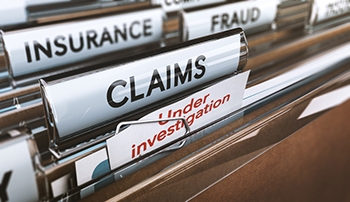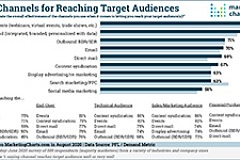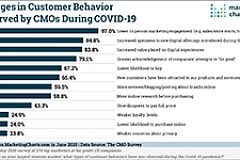 Fraud is at an all-time high, with 47 percent of companies have experienced fraud in the past two years, according to PWC’s Global Economic Crime and Fraud Survey 2020. Procurement fraud is just one of the types of crime covered in the survey’s list of 13 potentially fraudulent activities, but it holds the 6th position in terms of how often it occurs.
Fraud is at an all-time high, with 47 percent of companies have experienced fraud in the past two years, according to PWC’s Global Economic Crime and Fraud Survey 2020. Procurement fraud is just one of the types of crime covered in the survey’s list of 13 potentially fraudulent activities, but it holds the 6th position in terms of how often it occurs.
So, what is procurement fraud exactly, and how can your company avoid, detect, and manage the risks of it happening to you?
Identifying Procurement Fraud
Procurement fraud is probably one of the oldest white-collar crimes around. That doesn’t mean it’s out of date, though; in the new digital environment, it’s flourishing in multiple different ways.
With business purchasing patterns and work environments changing with the COVID-19 disruptions, the opportunity for fraud is higher than ever. [quotes]The move to working remotely, compounded by purchasing orders being made to unfamiliar vendors can seem like an opportunity too good to pass up by fraudsters.[/quotes]
At its heart, procurement fraud is the practice of using dishonest methods to get money or goods, obtain an advantage, or avoid an obligation in a way that benefits the perpetrator at the expense of the company, its customers, or trading partners.
That sounds broad, but it can take several forms. This graphic shows how different areas can overlap.
Types of Procurement Fraud
The type of procurement fraud most often experienced by small- to medium-sized business owners is collusion between vendors and employees. This involves actions like:
- Kickbacks to employees for accepting higher pricing,
- Overpayment, followed by “refunds” to the employee,
- Favorable agreements for employee-owned vendors (bid-rigging), and
- Misreporting of deliveries, so the company receives less than the goods that were paid for.
Other avenues for procurement fraud committed by employees are the use of company orders for personal purchases (without repaying the money) and duplicated invoice payments to balance the books after funds have been removed.
The Impact on Business
Procurement fraud can impact your business in multiple ways. U.S. companies report total fraud losses of up to $42 billion per year, although it’s hard to determine the percentage that applies to procurement fraud.
Aside from the obvious financial loss, there are also feelings of negativity, low staff morale, and reduced productivity caused by investigation time, employee turnover, and other consequences.
Research by the Association of Certified Fraud Examiners (ACFE) shows businesses take a hit of around 5 percent of their annual revenue thanks to fraud committed by employees, managers, owners, and executives. That gives you an idea of what you could lose in just a single incident of procurement fraud in your company.
Being subject to procurement fraud can also cause unexpected negative results. For example, bid-rigging could cause inferior product deliveries that affect a top client’s outcome, resulting in the loss of the client. In instances such as substandard construction materials or activities, it could potentially result in loss of life and damage to reputations.
How to Prevent Procurement Fraud
As much as it might sound like a losing battle, we simply can’t give up fighting procurement fraud at every opportunity. Prevention is once again better than a cure: Put systems and checks in place ahead of time to avoid it. Some of the common methods small businesses use are:
1. Staff Background Checks
Screening candidates for employment using an established background check company can help you identify potential fraudsters before they have a chance to move against you. The ACFE research shows background checks alone uncovered red flags for one in 10 fraudsters, so it’s worth checking out a candidate unless you personally know them really well for many years.
2. Separation of Duties
 Breaking down procurement-related activities into steps that involve several people might sound like overkill, but unless all the parties can be persuaded to collude, it’s an important form of checks and balances.
Breaking down procurement-related activities into steps that involve several people might sound like overkill, but unless all the parties can be persuaded to collude, it’s an important form of checks and balances.
For example, if your operations person places an order, make sure someone else checks the delivery note and a third person (or you) also authorizes the payment.
That authorization should include at the very least a review of both the order and the delivery note, if not the actual goods received. In larger firms, it’s also a good practice to assign orders to a department or function, so you know where purchases are destined to be used and can follow up to see if this actually happens as planned.
3. Purchasing Policies
The creation of official purchasing policies that detail the required steps enables business owners to include following them in employees’ job descriptions. This leaves no doubt as to what an employee’s responsibilities are and removes the chance of litigation based on unclear directives if you fire an employee for not adhering to policies.
4. Fraud Detection Training
It doesn’t help to have purchasing policies with multiple steps in place if the people engaged in them don’t know what to look for. Fraud detection training should be provided for your top financial officer at the very least, and if possible, for anyone in a position to authorize or approve a final purchase or payment.
It’s also useful if you can extend fraud detection training to all employees because you never know when a worker might spot something they would otherwise not realize was fraudulent.
5. Job Rotation and Mandatory Vacations
These are two of the best practices for avoiding employee-related fraud in a company because staff knows that another person will soon be taking over their duties. This will put them in a unique position to discover any patterns of bad behavior.
Job rotation, whether to cover for staff on mandatory vacations or simply as a cross-skilling exercise, helps to enrich employees’ experiences and prevent burn-out. It also gives you fallbacks during times of illness and employee turnover.
Mandatory vacation policies are especially common in financial industries, where a perpetrator might have to take steps daily to keep an embezzlement scheme running undetected.
[quotes]The simple act of having someone else perform daily operations can bring schemes to light.[/quotes] This method is so effective that many companies schedule these vacations to take place at the same time as an audit – increasing scrutiny two-fold.
6. Tip Line
Creating a tip line or other anonymous method of whistleblowing is helpful in companies of any size because many people hold back on reporting fraud because they don’t want to get personally involved.
A staffer might have suspicions but no real evidence, and they won’t come forward without it for fear of making false accusations. An anonymous tip can point the business owner in the right direction and empower them to investigate without confronting anyone until the allegations have been proven.
Detecting Procurement Fraud
Don’t let your business be a fraud statistic. Even if you feel certain there’s nothing fraudulent going on in your company, it’s a good thing to conduct financial and inventory audits, monitor your bank accounts and run fraud detection software on your online systems on a regular basis.
Regardless of how careful you are, it’s not possible to guarantee you’ve avoided all types of fraud. Detecting it early is your next best chance of containing the damage.
Resources:
- https://sipmm.edu.sg/crucial-strategies-prevent-procurement-fraud/
- https://www.businessnewsdaily.com/3388-company-prevent-fraud.html
- https://www.thebalancesmb.com/how-can-i-protect-my-business-from-fraud-398261
- https://www.acfe.com/press-release.aspx?id=4294973129
- https://www.nigp.org/docs/default-source/new-site/education/webinars/procurement-fraud-can-you-detect-it---nigp-webinar.pdf
- https://www.researchgate.net/publication/236208095_The_Effects_of_Fraudulent_Procurement_Practices_on_Public_Procurement_Performance
- https://www.pwc.com/gx/en/forensics/gecs-2020/pdf/global-economic-crime-and-fraud-survey-2020.pdf
- https://www.financierworldwide.com/procurement-fraud-an-old-fraud-flourishing-in-emerging-markets-and-costing-businesses-billions#.Xsa2hi-z2QI
- https://www.paychex.com/articles/management/fraud-detection-techniques-small-business














